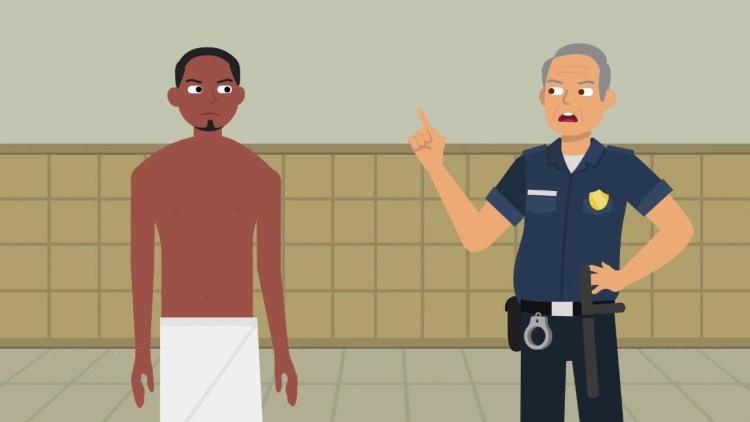Florence v. Board of Chosen Freeholders of the County of Burlington
United States Supreme Court
566 U.S. 318, 132 S. Ct. 1510, 182 L. Ed. 2D 566 (2012)

- Written by Sara Rhee, JD
Facts
In 2003, a bench warrant was issued for the arrest of Albert Florence (plaintiff), based on his failure to pay a fine imposed after a prior conviction for a minor offense. Florence paid the fine, but the warrant was not removed from the statewide database. Consequently, Florence was arrested two years later and taken to the Burlington County Detention Center (Burlington County). After six days, Florence was transferred to Essex County Correctional Facility (Essex County). At Burlington County, every arrestee was required to shower with a delousing agent. Correctional officers then examined the arrestees for identifying marks and contraband. Florence claimed that he was required to open his mouth, lift his tongue, raise his arms, turn around, and lift his genitals. At Essex County, the largest county jail in New Jersey, the detainees were required to walk through a metal detector. All inmates were then required to remove their clothing while a correctional officer examined their bodies for identifying marks and contraband. Florence claimed that he was required to lift his genitals, turn around, and cough while squatting. Florence was then required to shower while officers inspected his clothing. Florence was released the day after arriving at Essex County. He brought suit against the government entities operating the jails, among others (defendants) arguing that correctional officers should be able to conduct strip searches in jail only upon reasonable suspicion that the inmate carries contraband.
Rule of Law
Issue
Holding and Reasoning (Kennedy, J.)
Concurrence (Roberts, C.J.)
Concurrence (Alito, J.)
Dissent (Breyer, J.)
What to do next…
Here's why 907,000 law students have relied on our case briefs:
- Written by law professors and practitioners, not other law students. 47,100 briefs, keyed to 996 casebooks. Top-notch customer support.
- The right amount of information, includes the facts, issues, rule of law, holding and reasoning, and any concurrences and dissents.
- Access in your classes, works on your mobile and tablet. Massive library of related video lessons and high quality multiple-choice questions.
- Easy to use, uniform format for every case brief. Written in plain English, not in legalese. Our briefs summarize and simplify; they don’t just repeat the court’s language.





